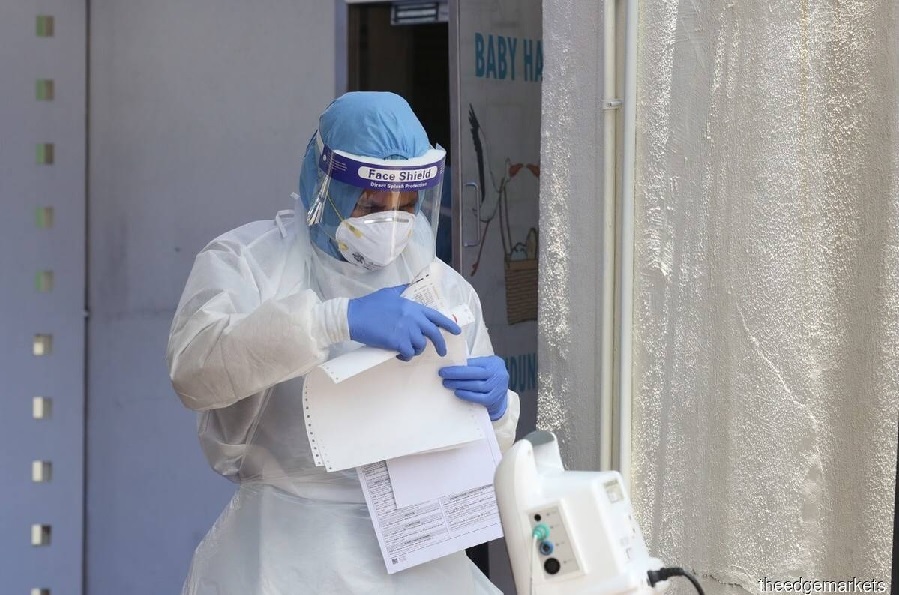Four new clusters detected with 123 infections while three clusters ended

KUALA LUMPUR (Nov 13): The Ministry of Health (MOH) detected four new Covid-19 clusters, of which two are in Sabah, today with 123 infections related to the clusters.
In Sabah, of the two new clusters detected one is in Sandakan — the Bonggaya cluster with 46 cases — while the other is the Jambatan B cluster with 53 cases.
The third new cluster called Abell cluster is in Kuching, Sarawak, in which there are 14 cases confirmed. There is one cluster detected in Melaka — the BMU cluster — in Jasin with 10 cases.
Currently, there are 158 active clusters in the country, of which 65 COVID-19 clusters, or 41.1%, are linked to the workplace, according to MoH director-general Tan Sri Dr Noor Hisham Abdullah.
There are 5,681 COVID-19 positive cases recorded in the clusters linked to the workplace, involving 3,369 Malaysians and 2,312 foreigners.
He explained that these confirmed infections were the result of proactive action taken by employers who conducted COVID-19 screening on their employees.
Meanwhile, MoH director-general Tan Sri Dr Noor Hisham Abdullah announced that three clusters have ended today as no new cases were reported over the past 28 days.
These clusters are the Selasih cluster involving Putrajaya, Selangor, Johor and Negeri Sembilan, the Bah Pengkalan cluster in Perak and the Bah Pasir cluster involving Negeri Sembilan and Putrajaya.
MOH reported 1,304 new COVID-19 cases, after five consecutive days reporting triple-digit infections.
This brings the total number of COVID-19 infections in the country to 45,095 cases, with active cases climbing to a fresh high to record 11,822.
The Klang Valley today saw a spike of 567 cases, an increase of 2.5 times from 224 cases reported yesterday, according Dr Noor Hisham.
This comprised Selangor with 364 cases and 202 cases in Kuala Lumpur — the highest daily figure recorded for these two areas since the pandemic hit the country in January. Meanwhile, Putrajaya only has one case.
“From 567 cases reported in Klang Valley, some 488 cases or 86.1% came from the clusters,” said Dr Noor Hisham.
Dr Noor Hisham said, the spike in COVID-19 cases in the Klang Valley was due to the population density and the interstate movement of people.
Get the latest news @ www.EdgeProp.my
Never miss out
Sign up to get breaking news, unique insights, event invites and more from EdgeProp.
Latest publications
Malaysia's Most
Loved Property App
The only property app you need. More than 200,000 sale/rent listings and daily property news.
